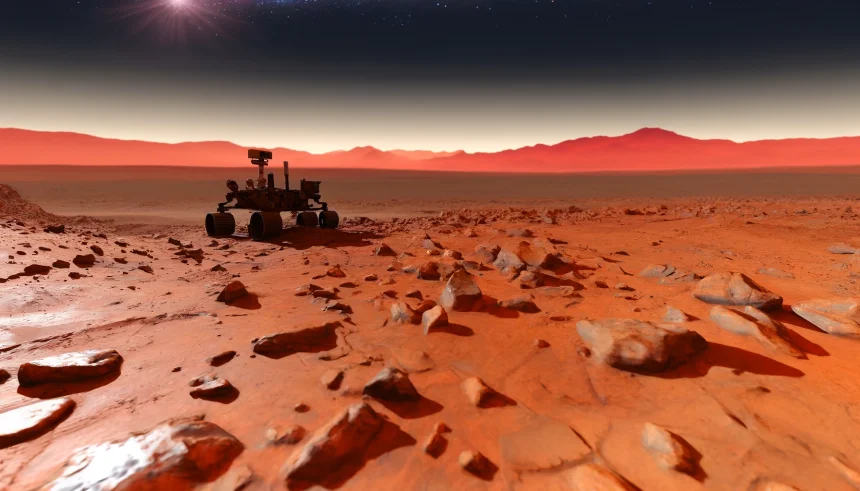New insights into Mars’ ancient climate reveal that hydrogen played a pivotal role in sustaining warmer conditions. This discovery offers a deeper understanding of the planet‘s transition from a potentially habitable world to its current cold and dry state. By examining geological evidence and atmospheric models, scientists are piecing together the factors that influenced Mars’ environmental shifts over millions of years.
Research indicates that early Mars experienced fluctuating climates, alternating between warm, wet periods and cold, dry epochs. While previous theories suggested a gradual cooling trend, recent findings propose a more dynamic climate history influenced by hydrogen levels in the atmosphere. This perspective aligns with the observed geological formations that indicate both periods of liquid water and arid conditions.
How Did Hydrogen Influence Mars’ Climate?
Hydrogen, released through crustal hydration and volcanic activity, contributed to a greenhouse effect that kept Mars warm enough for liquid water. This hydrogen-rich atmosphere, combined with carbon dioxide, enhanced the planet’s ability to retain heat despite the faint young Sun. The interplay between these gases facilitated the sustenance of liquid water on Mars’ surface for extended periods.
What Evidence Supports Climate Oscillations?
Geological surveys, including data from NASA’s Perseverance rover, have uncovered numerous ancient river channels and lakebeds. These formations suggest that Mars underwent significant climate variations, allowing for intermittent periods of warmth and wetness. The presence of both oxidized and reduced minerals on the Martian surface further corroborates the hypothesis of fluctuating atmospheric conditions.
Can This Explain Mars’ Current State?
The alternating climate model accounts for the lack of extensive carbonate deposits on Mars. A hydrogen-driven greenhouse effect would have moderated the planet’s temperature, preventing the sustained presence of neutral pH water necessary for large-scale carbonate formation. This mechanism also explains the mixed oxidation states observed in surface minerals, reflecting the planet’s volatile atmospheric history.
“Early Mars is a lost world, but it can be reconstructed in great detail if we ask the right questions,”
stated Robin Wordsworth from Harvard University. This comprehensive study not only bridges gaps in our understanding of Martian history but also sets the stage for future research, especially with the potential analysis of returned samples by NASA’s Perseverance rover.
Examining historical data, previous studies primarily focused on CO2 as the main greenhouse gas on Mars. The inclusion of hydrogen introduces a new dimension to climate models, offering explanations for previously unexplained geological features. This shift in perspective may lead to reevaluations of Mars’ habitability and its capacity to support life during its early history.
The findings underscore the complexity of planetary climate systems and the delicate balance required to maintain habitable conditions. Understanding the role of hydrogen on Mars not only sheds light on the planet’s past but also informs the search for life and the assessment of habitability on other exoplanets with similar atmospheric compositions.










